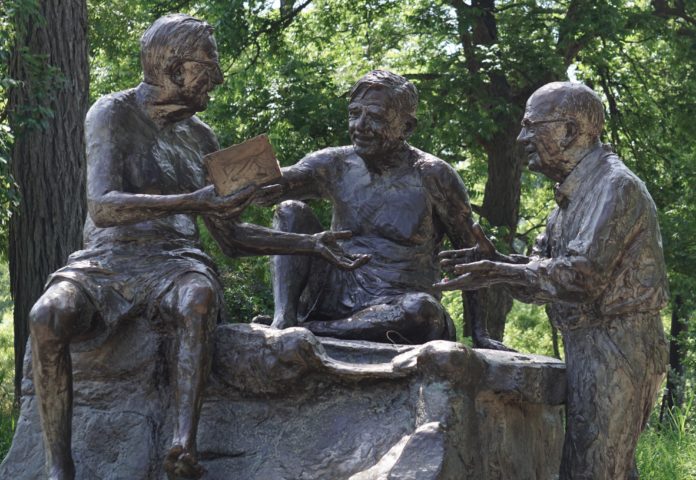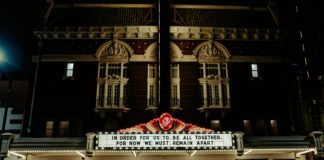
Approaching my 57th birthday in 2015, I began to contemplate how I would spend the next 15 -20 years of my professional life. I decided to shift a good portion of my time away from my profession of the last 20 years to helping to solve pressing social issues. To craft a personal strategy, I sought counsel from family and friends, read deeply about many social problems, and studied intently the effective altruism movement that was gaining traction at the time. Many of the concepts of effective altruism rang true – using reason, evidence, economic concepts, and cost-benefit analysis to find the best social or philanthropical causes to support. But I was bothered by some of the implications implicit in the movement. Namely, when taken literally, one would ignore important issues in favor of urgent issues. Low probability, high investment problems would go unsolved. Many of our urban problems could fester and remain unresolved.
Preventing and then reacting to a pandemic like COVID-19 is an excellent example of a problem that, pro forma, is hard to justify investment using typical cost-benefit approaches. COVID 19 may be one of the top two most important (the other being climate change) currently knowable problems of this century. But COVID-19 is not the only issue Austin or other urban centers will face. We are already witnessing challenging problems that involve difficult tradeoffs that pit one issue against another. Economic growth and inequality, public health and individual freedoms, city and State financial resources and structural poverty, housing stock growth and environmental impacts, homelessness and adequate social support services are all examples where simplistic problem solving or cost-benefit analysis will not suffice.
Recovering from the COVID 19-induced shock, or solving the kinds of urban problems mentioned, will take a different type of problem-solving. In my experience, that kind of problem-solving needs to leverage a diversity of experience, expertise, analysis, and creative thinking. Those issues also need to be debated using multiple social, economic, and cultural lenses to come up with the best solutions. Capitalizing on its many assets, Austin is in a unique position to lead Texas in its approach to building a great city – a city that convenes its many and diverse citizenry to increase its collective problem-solving horsepower.
I recently witnessed a microcosm of this convening problem-solving approach in 2017. During 2017, my wife, Madeleine, and I attended Harvard’s Advanced Leadership Initiative, aka ALI, living near Harvard, for the year. ALI is “a new third stage in higher education designed to prepare experienced leaders to take on new challenges in the social sector where they potentially can make an even greater societal impact than they did in their careers” (from its website). For a year, fellows leverage the entire university system to study, analyze, plan, and often launch a social sector project that they hope to lead. For us, that year was a gift. It was an excellent tour of the latest thinking, insight, and research in many social areas.
While at Harvard, a term that was frequently used was ‘convening power.’ Convening power is the ability to bring together large, diverse groups to solve significant issues and commit to action. Harvard has incredible convening power. Being close to the university allowed us to take full advantage of various convening events at Harvard. On any given night, one can attend a panel of the world’s best thinkers on a wide array of topics. A university’s convening power, bringing in the best of experts in their particular field and a diverse set of practitioners, can inject innovation, science, and dialog into managing tradeoffs and solving tough problems.
At Harvard, convening events ranged from the ‘big ticket’ – one-off conferences on global warming, for example, to the periodic – annual education innovation summits, to the less formal – political speakers and panels; to the in-depth – weekly seminar series on poverty and inequality. The vast majority of these events were open to the public. The Harvard community, interested practitioners, and the surrounding community members often attend.
Austin already has several convening events, including SXSW, Conscious Capitalism, and the Texas Tribune Festival, to name a few. But, living in the back yard of the University of Texas at Austin provides an even more powerful platform to ‘up the ante’ on Austin’s convening. The scale of the university and the research budget – at over $600 million per year, the research budget is the equivalent of starting almost three venture capital firms per year – presents an opportunity to put the best minds to work on potential breakthrough issues. Over the last few months, I have been engaged in a project at the Lyndon B. Johnson School of Public Affairs. The project is national in scope and involves convening experts from all sectors (academics, practitioners, government, business and the like) for input and problem-solving. Being involved in the project has been a profound learning experience and, while the results won’t be published until late fall, is an example of a high-value convening to solve a societal change project.
Austin has the elements of a great platform to drive the convening of problem-solving. Still, Austin should aspire to up its game, leveraging those elements to be the center of convening ‘the best of’ to solve some of our toughest urban problems. Austin has a distinctive blend of top-notch thinking and research, a ‘get it done’ culture of entrepreneurship, a country-sized scale government, and a creative culture second to none in the state. What makes Austin unique is not that it has those individual elements; it is that no other city in Texas has the scale and mix of those elements, and the ability to bring them together.
As a private investor, before moving to Austin, I have long traveled here to scout potential investments. As Austinites know, the entrepreneurial atmosphere and venture funding of startups in Austin is second to none in the state. As a visitor over the years, I have been impressed with Austin’s startup leadership. More so than in Dallas or Houston, it seems as if the first startup ‘winners’ went on to help other companies in their quest for growth. In many cases, that kind of leadership created a virtuous cycle of entrepreneurial and economic growth. While I am still in my early days of understanding the business culture here, Austin seems to have both a cadre of strong and helpful business leaders and an extraordinary ‘get it done’ entrepreneurial core.
And there is the State Capital and all of its ecosystem. Texas’ budget scale is equivalent to the budgets of Poland or Israel. Budget-wise, Texas is a country unto itself. I am not much of a political animal, but I believe that having the country-sized Texas state government nearby can be a tremendous asset, applying a Texas lens to pressing social issues.
Finally, there is Austin’s culture, a mix of unbridled creativity without the kind of pretension seen elsewhere. Among the people that I have gotten to know over the last couple of years, I see a genuineness that is affecting. I have had to lose my business casual sport coat in favor of jeans and boots for most of my meetings. And, while the U.S. is increasingly ideologically polarized, I’ve found that my more conservative and more progressive acquaintances are open to dialog. Whether that is due to the spillover effects of an influential artistic and creative culture here, the influence of the university and scientific study, or the ‘get it done’ business ethic, I’ve found a renewed energy in open dialog around critical issues.
So, how do we start convening to tackle our most pressing issues? Who or what institution is the natural owner of urban issue problem-solving? In Boston, the universities play a critical role. UT would be a great place to start. But, there are other potential homes – calling on the existing business networks to create a list of the top issues to solve; doing the same with our city government; or perhaps hitching the wagon to SXSW, creating a SXSW local or SXSW urban, if you will. The point is that there is a tremendous amount of intellectual capacity and energy in Austin. We need to put Austin’s intellectual capacity and diversity to work.
My wife Madeleine and I have lived in four Texas cities, and I have commuted to work in a fifth. I grew up in Houston, worked in the oil and gas industry in Corpus Christi, raised a family in Dallas, commuted to San Antonio, and now live here. We think there is no better place to be as we continue our ‘later stage’ professional pivot.
We are extraordinarily excited about the promise of Austin’s convening for urban problem-solving.
If you like what you’ve been reading, please click here to subscribe and we will send you updates and our newsletter.





